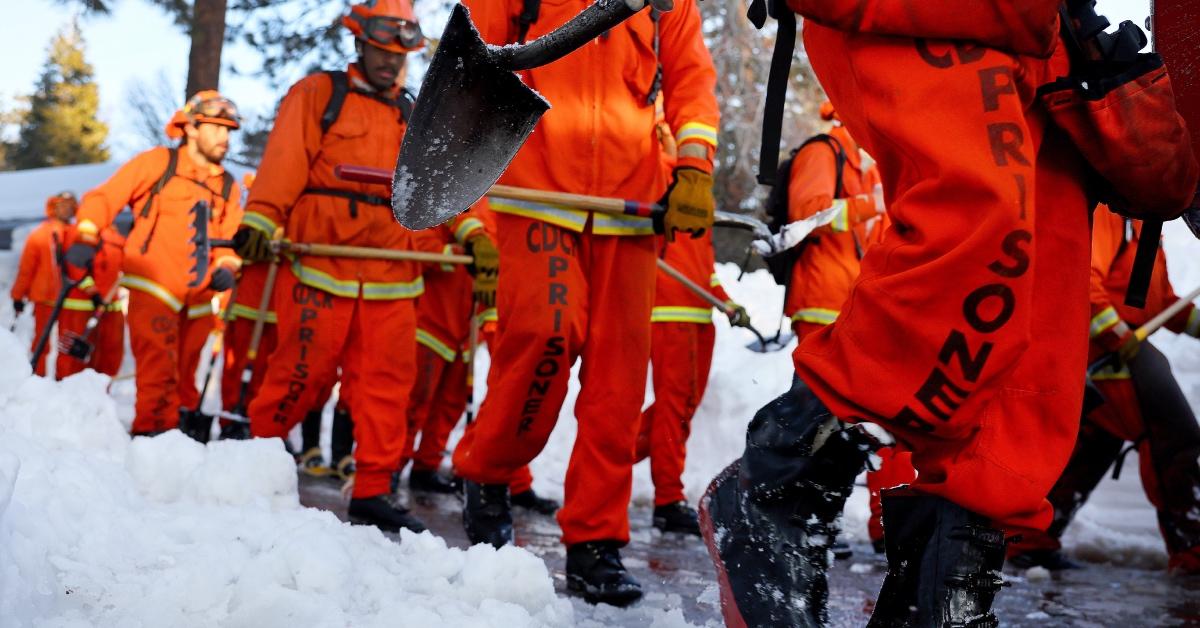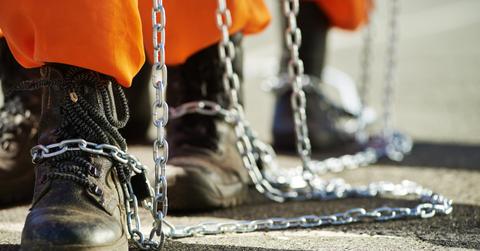Some of the Most Recognizable Brands Rely on Prison Labor to Make Money
Some of the biggest companies in the U.S. use prison labor, and the pay is abysmal (if they pay at all). Here's a look at some of the companies.
March 27 2023, Updated 11:36 a.m. ET
In grade school, American children learn about the 13th Amendment. They're told the 1865 addendum to the U.S. Constitution was the end of slavery, thanks in large part to President Abraham Lincoln. However, they aren't told about the criminal clause within that amendment that makes it okay for companies to use prison labor.
"Neither slavery nor involuntary servitude, except as a punishment for crime whereof the party shall have been duly convicted, shall exist within the United States, or any place subject to their jurisdiction."
In short, slavery is illegal, except when someone is convicted of a crime. That penal labor loophole has gone on to impact millions of prisoners in the last 155 years. It raises the questions, why are inmates subjected to this and which companies utilize them for work? Here's what we know.
What is prison labor?

Several companies rely on prison labor.
Prison labor is work that able-bodied inmates in the U.S. prison system are forced to do for minimal or nonexistent pay.
Both federal and state prisons use prison labor. Some organizations have estimated how much company revenue prison labor brings in each year in the U.S. The low end of that estimate is $2 billion.
Why do companies use prison labor?
Companies use prison labor for one simple reason: to boost their bottom line.
For these businesses, cheap or free labor is the foundation of their business plan. In fact, private prisons are some of the most active proponents of policies that keep prisons full. This is because they need people to perform the work that brings in money. Ultimately, full prisons are a job market incentive.
Corporations tend to distance themselves from the prison labor they rely on by subcontracting their work to companies who go on to contract labor from the prisons.
As controversial as it may be to have prisoners perform work in exchange for a business to profit, the non-profit advocacy organization Worth Rises provides some insight as to why it happens. The organization says that each year, the U.S. spends over $80 billion incarcerating millions of people in prison, jail, youth correctional facilities, and immigration detention centers.
In a sense, the money they earn through work helps support the amount they're costing the government to house them in facilities while they carry out their sentence. Still, (nearly) free labor without benefits is deemed unconstitutional by many.
What are some companies that use prison labor?
More than 4,1000 companies in the U.S. profit from mass incarceration. Many of these are prisons themselves, but some are companies who rely on penal labor to manufacture goods or provide services. Around 63,000 prisoners produce goods for external sale.
- Verizon uses inmates to provide telecommunication services.
- Fidelity Investments uses some held assets to fund the American Legislative Exchange Council (ALEC), an organization that promotes inmate work.
- Kmart and JCPenney use inmate labor in Tennessee to make denim products.
- Walmart uses prison labor to clean barcodes so products can be resold.
- Some cheese and fish from Whole Foods comes from prison labor.
- Circuit boards from IBM come from Texas prisoners.
- Wendy's and McDonald's use prison labor to process beef for their food products.
In addition to manufacturing goods for external sale, prisoners often take part in work release programs. They'll go on site to a private company and perform work for them there before returning to prison. This is common with prisoners, but it's also common with drug and alcohol rehab patients, as divulged in the Reveal series American Rehab.
How much money do inmates make?
An inmate's hourly rate varies by state. For federal prisons, UNICOR-employed inmates make anywhere from $0.23–$1.15 per hour. Many prisoners don't make anything at all.
Prisoners work in what many refer to as skilled and unskilled labor, but it's worth noting that this language promotes unconscious bias. All labor is skilled in some way — and all labor is worth paying.
According to the Ava DuVernay documentary 13th, white males have a 1 in 17 chance of ending up behind bars in the U.S., while Black males have a 1 in 3 chance. The penal labor norm is more than just an American issue. It's a race and class issue, and the criminal clause in the 13th amendment is at the root of it.

